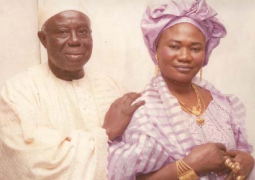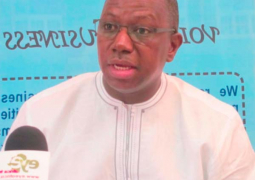International Criminal Court Chief Prosecutor Fatou Bensouda takes up her new role at the world’s first permanent international crimes court with a full tray.
The former Gambian justice minister is the first woman, and African, to hold the position after taking over from Luis Moreno-Ocampo with whom she worked since 2004.
No doubt, she has a whole lot of issues on her agenda. Among them, she’ll be prosecuting the court’s second head of state, former Ivorian President Laurent Gbagbo, and overseeing seven cases and nine preliminary investigations.
Ahead of taking office, Ms. Bensouda set out a number of priorities that she will pursue during her term, including reviewing the quality and efficiency of investigations.
She will also prioritise prosecutions, developing a strong gender policy and clarify the process through which the office selects where it will conduct investigations.
Bensouda steps into her new shoes at a time the ICC is under heavy criticism from some African leaders.
The African Union has accused the court of practicing double standards by ‘only targeting the continent’ in its prosecution of war crimes.
While on a visit to Washington for a meeting between the US and AU last year, chairman Jean Ping complained ICC’s formal cases have so far involved “exclusively Africans, as if nothing was going on in Sri Lanka, Pakistan and Georgia”.
This argument has been discounted on the basis that African countries are signatories to the Rome Statute, which established the court, and have sought ICC intervention.
But just what does Bensouda’s entry mean for Africa?
While Bensouda’s appointment may lessen criticism directed at the ICC for its alleged ‘anti-African’ stance, it also comes with huge expectations of the prosecutor.
Much has been made about the fact that the ICC’s amount 15 cases are all from seven African countries - Uganda, Democratic Republic of Congo, Sudan, Kenya, Central African Republic, Ivory Coast and Libya.
However, four of the seven states in Africa asked the court to investigate, because they were unable to try senior figures in their countries.
Despite the criticism, many concede that The Hague-based court plays an important role and with its first-ever conviction of Congolese warlord Lubanga recently, the ICC has made a change.
Will Fatou Bensouda redeem the ICC from growing criticisms, notably from her own continent? Only time will tell.
We wish Fatou Bensouda all the best of luck as she embarks on a very challenging journey to ensuring justice for all.
“The greatest challenge to any thinker is stating the problem in a way that will allow a solution”.
Bertrand Russell
Read Other Articles In Article (Archive)
School Principal Trial Adjourned
Sep 15, 2008, 5:52 AM



